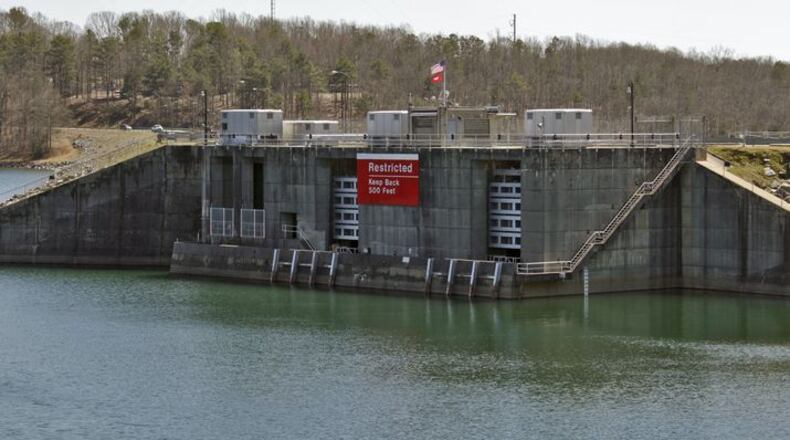WASHINGTON -- The U.S. Senate moved a bill Monday to fund the government for the next two-and-a-half months, and Sen. Johnny Isakson, R-Ga., was particularly excited about something that was not in it: Language to tip the balance in the never-ending "water wars" among Georgia, Florida and Alabama.
This spring, Sen. Richard Shelby, R-Ala., secured language in an appropriations bill that would have blocked the Army Corps of Engineers from reallocating water in the Alabama-Coosa-Tallapoosa basin until the governors of Alabama and Georgia work out an agreement. This matters because most court decisions over the years have tilted in Georgia's direction the battle over how much water metro Atlanta can draw from rivers and reservoirs, and the corps is updating its water plans accordingly.
Gov. Nathan Deal met with his Alabama and Florida counterparts on the issue this year, but there is little evidence that an amicable agreement is nigh, particularly as Georgia and Florida are locked in costly litigation in the U.S. Supreme Court over water flows.
Georgia does not want Congress to weigh in at all on the water wars, and Isakson said he's been working to eliminate Shelby's "egregious language." The House version of the energy and water appropriations bill does not have the language.
Isakson said the water wars issue was an important reason why he voted for the "continuing resolution" -- even though it did not defund Planned Parenthood, as he and most Republicans would have liked:
"I can understand people who want to make a political point [about Planned Parenthood] and that's all well and good, but I don't want Atlanta to run dry. ... I've been crawling on my hands and knees for the last two weeks following along the process to make sure that language isn't in there."
Shelby was not so preoccupied, according to spokeswoman Torrie Matous:
"Because the short-term CR is simply a stop-gap continuation of Fiscal Year 2015 spending policy, Senator Shelby did not request, nor was he expecting, the 'water wars' language from the Fiscal Year 2016 Energy and Water Appropriations bill to be included. However, Senator Shelby will continue to fight to ensure that the committee-approved language is incorporated in any final appropriations measure that is ultimately enacted."
The House is expected to clear the continuing resolution before the government shuts down Thursday, making Dec. 11 the next deadline day.
At that point, observers expect Congress to consider an "omnibus" spending bill for all of Fiscal 2016, and it becomes a behind-the-scenes test pitting Georgia against Alabama, House against Senate. Shelby, first elected in 1986, can put his long seniority on the Appropriations Committee to work, while Isakson will try to leverage his relationships with those higher on the food chain.
About the Author
The Latest
Featured



